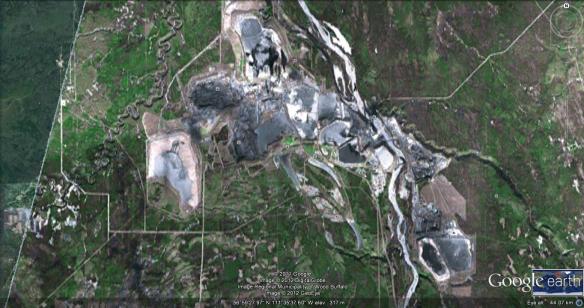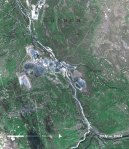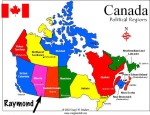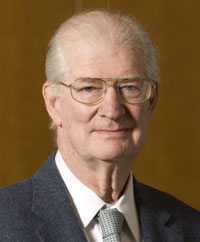Politicians have taken regard of historian Simon Schama’s comment that no one ever won an election by telling voters it had come to the end of its “providential allotment of inexhaustible plenty”. The official policy articulated, in a moment of unusual candour, by Jean-Claude Juncker, the current head of the European Commission, was that when the situation becomes serious it is simply necessary to lie.
For the moment, to paraphrase Alexander Solzhenitsyn, the “permanent lie [has become] the only safe form of existence“.
http://www.smh.com.au/comment/satyajit-das-column-20150825-gj7bcy.html#ixzz3kIOC1BVl
The issue of climate change is no different, with the exception that blind faith in technology also incorporates a collective “amnesia” about the problems that we face because of technology. As pointed out to Stewart Brand by Winona LaDuke.
The politics of the “Intergovernmental Panel on Climate Change” are based on the most powerful (U.S.) corporate intellect, the same philosophical basis upon which all governments are run.
The very oil, coal, and gas giants that have brought us to the brink of catastrophe are not just at the negotiating table—they are coming dangerously close to running the show. Examples of Big Energy’s influence in the talks abound: from corporations actually sponsoring the last round of talks (COP19), to industry front groups like the World Coal Association and IPIECA (the International Petroleum Industry Environmental Conservation Association) gaining official status, to solutions on the table that seek to enrich the private sector above all else.
Naomi Klein’s book “The Shock Doctrine” on “disaster capitalism” is a stark reminder of what will happen to those who cannot pay, and the institutions on which they rely.
One of those who saw opportunity in the floodwaters of New Orleans was Milton Friedman……He wrote an op-ed for the Wall Street Journal three months after the levees broke. “Most New Orleans schools are in ruins,” Friedman observed, “as are the homes of the children who have attended them. The children are now scattered all over the country. This is a tragedy. It is also an opportunity to radically reform the educational system.”…….. George W. Bush backed up their plans with tens of millions of dollars to convert New Orleans schools into “charter schools,” For Milton Friedman, the entire concept of a state-run school system reeked of socialism. In his view, the state’s sole functions were “to protect our freedom both from the enemies outside our gates and from our fellow-citizens: to preserve law and order, to enforce private contracts, to foster competitive markets.” In other words, to supply the police and the soldiers—anything else, including providing free education, was an unfair interference in the market.
Within nineteen months, with most of the city’s poor residents still in exile, New Orleans’ public school system had been almost completely replaced by privately run charter schools. Before Hurricane Katrina, the school board had run 123 public schools; now it ran just 4. Before that storm, there had been 7 charter schools in the city; now there were 31
For more than three decades, Friedman and his powerful followers had been perfecting this very strategy: waiting for a major crisis, then selling off pieces of the state to private players while citizens were still reeling from the shock, then quickly making the “reforms” permanent.
From “The Shock Doctrine, The Rise of Disaster Capitalism”. Introduction
Governments who make the decisions in the IPCC forum have no thought to change the economic/social system to a more egalitarian climate justice base, but the IPCC is complicit by blind adherence to science fiction and the ecomodernist answers, Corporate ideology, and feeding this back into Government thinking as “viable”.
The Papacy turned the eye once more to the “moral” case for climate justice, but known skeptics within the church such as Cardinal George Pell from Australia, said the Catholic Church had no business issuing statements about politics.
The “Precautionary Principle” has morphed into ‘cost /benefit, risk analysis’ where GDP and profit are “privatising” what were once “Human Rights”
Naomi Klein’s book set the debate in the most analytical way possible. The logic is irrefutable, but is answered with silence and has failed to produce the required debate. Read it.
This is the “low road”, but requires more crowdfunding than is possible. Needs more emissions reductions that seem possible, more “Degrowth” than seems possible. It needs new financial taxes, redistribution of wealth and social reforms that don’t seem possible. More than that, it needs a sizeable majority with Climate Justice as its main talking point. Its a road we know instinctively but haven’t travelled before, its starting again.










 In a year when “Time” magazine awarded the “Person of the Year” to “The Protester” we are bound to examine the society that gave rise to the nomination. If we are unable, in truth, to question the viability of the society that gives the protester this status, then that society is not free. It is captive to a mindset that is totally subjective.
In a year when “Time” magazine awarded the “Person of the Year” to “The Protester” we are bound to examine the society that gave rise to the nomination. If we are unable, in truth, to question the viability of the society that gives the protester this status, then that society is not free. It is captive to a mindset that is totally subjective. 29 experts, including Herman Daly, were asked, “What do you think should be the two or three highest priority political outcomes of the United Nations Conference on Sustainable Development (Rio+20), scheduled for Rio de Janeiro in June 2012?”
29 experts, including Herman Daly, were asked, “What do you think should be the two or three highest priority political outcomes of the United Nations Conference on Sustainable Development (Rio+20), scheduled for Rio de Janeiro in June 2012?”